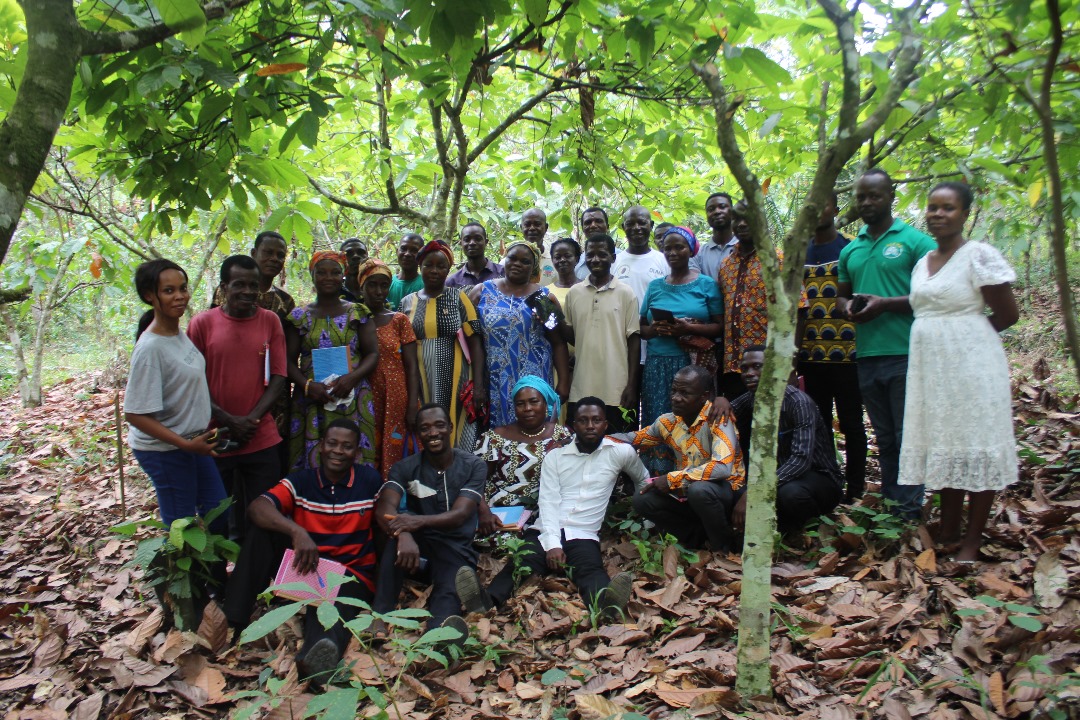In a bid to enhance sustainable agricultural practices and bolster community resilience, farmer groups and their communities in Ghana are being urged to adopt Integrated Management Systems (IMS).
The call to action comes as part of a collaborative effort between Conservation Alliance International and Rainforest Alliance, aimed at promoting Good Agricultural Practices (GAPs) and fostering landscape sustainability.
Speaking at a gathering held in Twifo Afeaso, Central Region, Raymond Owusu Achiaw, the Liaison Lead for the “Strengthening the Traceability, Accountability, and Resilience of Farmer Groups (STAR) project,” emphasized the importance of embracing IMS in agricultural operations.
Achiaw underscored the potential of IMS to streamline farming practices, improve productivity, and ensure environmental sustainability.
The project targets over 30 farmer groups within Ghana’s Kakum landscape, providing them with essential tools and resources to integrate IMS into their farming methodologies.
Through farm data collection and a dedicated geodatabase, farmers will be empowered to make informed decisions and optimize their land management practices.
Ama Akyema Sasu, the Field Co-implementation Lead, outlined the project’s objectives, emphasizing the role of IMS in promoting traceability, accountability, and resilience among farmer groups.
Sasu highlighted the significance of IMS in bridging knowledge gaps and equipping farmers with the necessary skills to navigate evolving agricultural landscapes.
As part of the initiative, farmer field school trainings will be conducted to enhance farmers’ understanding of IMS principles and implementation strategies. The project aims to increase net yields and improve the net income of farmer group members, thereby fostering economic empowerment and community development.
Ebenezer Darko, the Field Implementation Lead for Conservation Cocoa Association, encouraged farmer groups to embrace the opportunity to formalize relationships with international organizations like Rainforest Alliance.
Darko emphasized the transformative potential of IMS in enhancing agricultural sustainability and promoting holistic community development.
The call to adopt Integrated Management Systems underscores a collective commitment to advancing sustainable agriculture and safeguarding the long-term viability of farming communities. As farmer groups and their communities embrace IMS, they stand poised to unlock new pathways to prosperity and resilience in Ghana’s agricultural landscape.


Comments are closed.